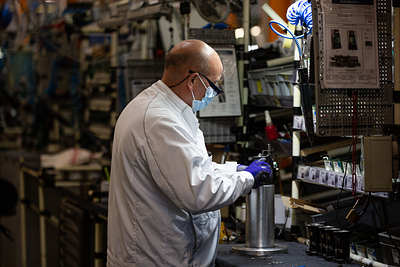
TBILISI
Security services in Georgia arrested two men in Georgia on charges of attempting to sell an unusual — and potentially dangerous — radioactive material.
The incident was the latest in a series of attempted sales in Georgia and other ex-Soviet states spanning almost two decades.
In the latest case, the Georgian State Security Service said the duo was trying to sell Americium-241, a byproduct of plutonium fuel used in nuclear power stations or weapons testing. The material is relatively unstable, meaning it emits radiation at a high rate and is dangerous if handled without strict precautions.
Security officials said that two men were apprehended in the western city of Kutaisi and could face seven to 10 years in prison if convicted.
The agency said the pair had offered the Americium-241 for sale for 300,000 Euros ($360,000), but said nothing about where the haul had originated. Georgia has no nuclear power plants and does not test nuclear weapons. The material is used in trace amounts in smoke detectors and other civilian applications.
Most instances of attempted sales have been relatively harmless, but a few have rung alarm bells.
In 2006, Russian national Oleg Khintsagov was caught trying to sell about 100 grams of U-235, a small amount of the primary element needed for a fissionable nuclear bomb.
Khintsagov had travelled to cities in Siberia, home of the Soviet nuclear weapon complex and was nabbed in a “sting” operation trying to sell the material to Middle Eastern buyers for $1 million. He served several years in prison and was sent back to Russia.
In March 2019, Georgia’s security services stopped two men in the Black Sea resort of Kobuleti from trying to sell radioactive materials for $2.8 million.
